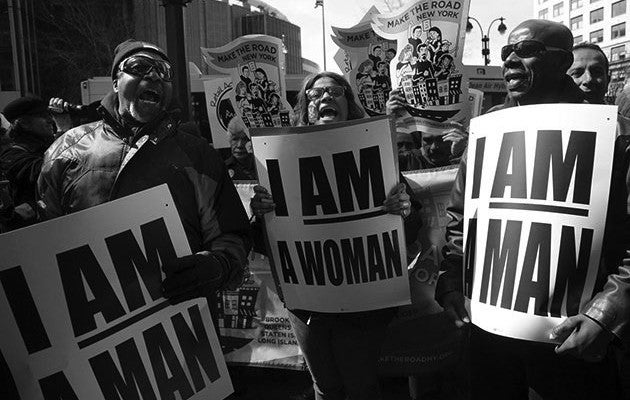WCP: Now Is the Time: Working-Class Studies in the Trump Era
Posted in Visiting Scholars | Tagged Academia, Donald Trump, Higher education, John Russo, Presidential Election, Sherry Linkon, WCP, White Working Class, Working-Class Perspectives, Working-Class Studies
After endless analyses and commentaries on the factors that propelled Donald Trump to the Presidency, it is time to prepare for the road ahead. In this week’s post, Sherry Linkon provides a blueprint for those in the field of Working-Class Studies, who are uniquely positioned to address the causes of working-class resentment and lapses in solidarity.
“First, we must continue to analyze the recent history and culture of the working class in order to better understand – and help others understand – the multiple factors that have undermined working-class communities and generated ever more resentment and despair, especially among the white working class. Over the past few years here at Working-Class Perspectives, Jack Metzgar has reviewed an emerging body of research and commentary that denigrates and misrepresents this group, ideas that were reflected in both reporting on and political appeals to white working-class voters. When left-leaning politicos and elite “coasters” comfort themselves by assuming that only the uneducated, foolish working class would support a racist, sexist, xenophobic campaign, those of us who have spent decades talking and working with working-class people must respond.
But we cannot rely solely on historical ideas about class solidarity or even analyses of the costs of deindustrialization, important as these histories are. We must be prepared to talk about current conditions and challenges. Among other things, that means we must take seriously the significant support for Trump among white voters without college degrees (according to exit polls, he won the support of 67% of such voters). We may criticize the use of this single demographic to define “the working class,” but we cannot ignore the fact that many white working-class people voted for Trump, including many who had supported Obama in 2008 and 2012. While they had varied reasons for doing so, including a long-simmering resentment of the political establishment, many did not merely accept his angry and divisive language but actually embraced his overt rejection and even ridicule of “political correctness.” Examining conflicts around race, gender, sexuality, nationality, and religion is not new work for Working-Class Studies, but the events of the past year provide rich if problematic material for further analysis. Now is the time for us to ask more critical questions and to focus more on the recent past and on contemporary conditions.”
Read the post in its entirety and check out other Working-Class Perspectives posts on our website.

